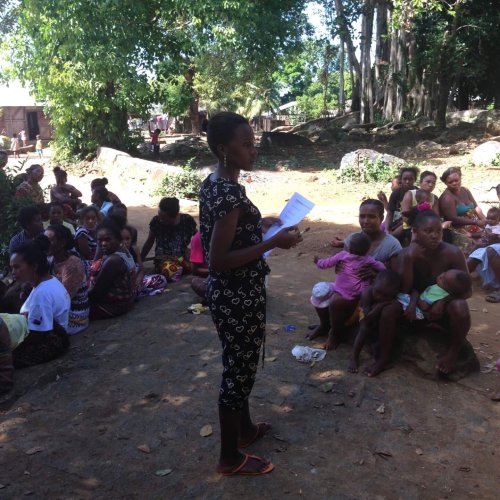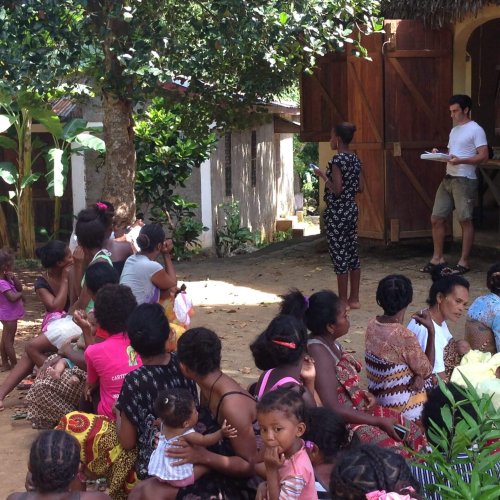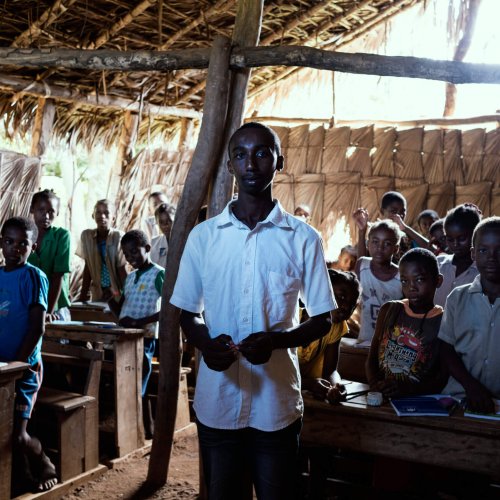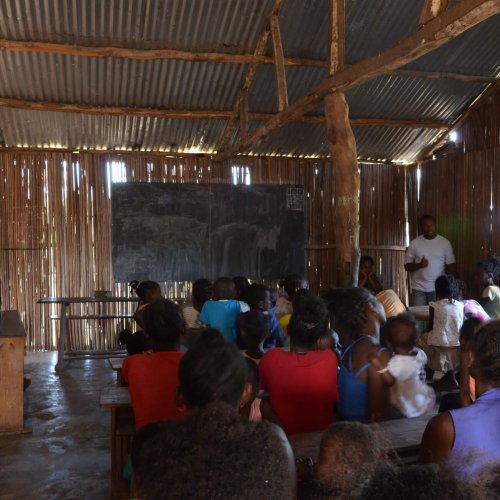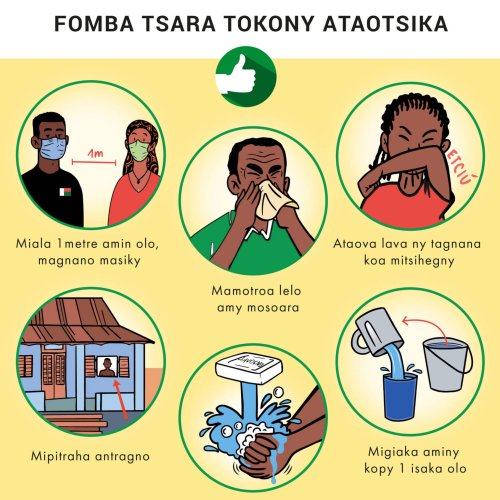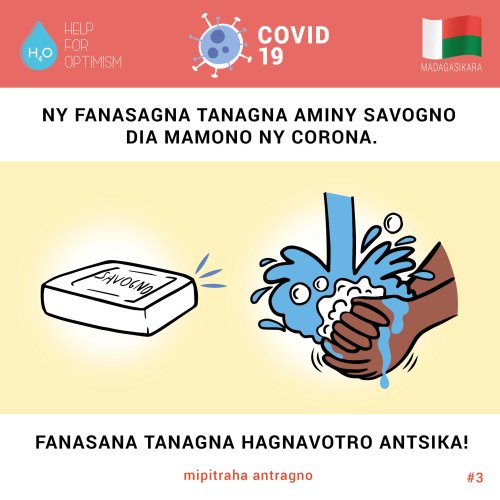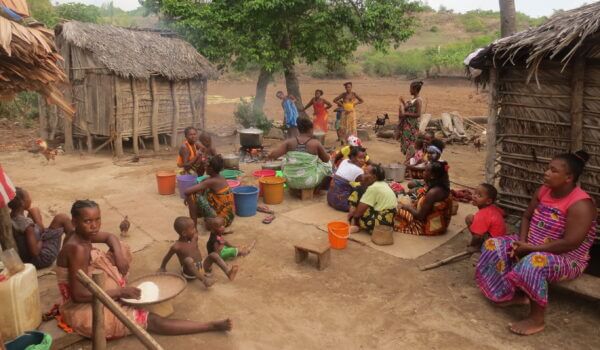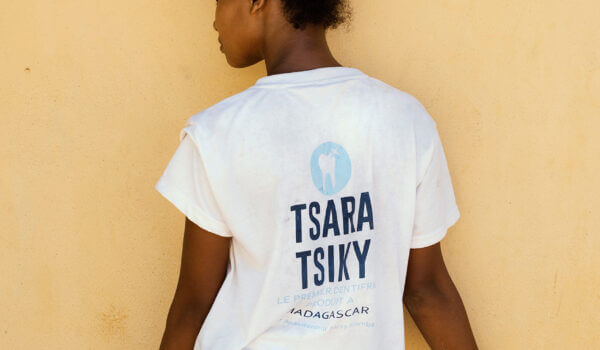Unicef-WHO data (2017), highlights the very limited access in rural Madagascar to clean water (63.77%) improved sanitation facilities (83.39%) and access to products for appropriate personal hygiene (49.46%). In 2016 H4O developed an in depth geo-localised household WASH KAP (Knowledge Attitudes and Practices) survey to prioritise and customise the Software Interventions.
Based on the evidences, H4O has designed the Hygiene and Sanitation Promotion programme so that beneficiary communities trigger the desire for a collective behavioural change, leading to a greater ownership and sustainability. The H4O programme mainly consists in workshops run by H4O trained local staff from the Tsara Tsiky social enterprise. The targets are students at primary and secondary school and their mothers. The project aims to stimulate the desire of having a private toilet and to promote hand washing together with other good practices emerged from the surveys. Clear and complete infographics explaining the Good and Bad habits have also been designed to be hung on the public boards of the beneficiary schools and are used to reinforce the message on a long-term basis.
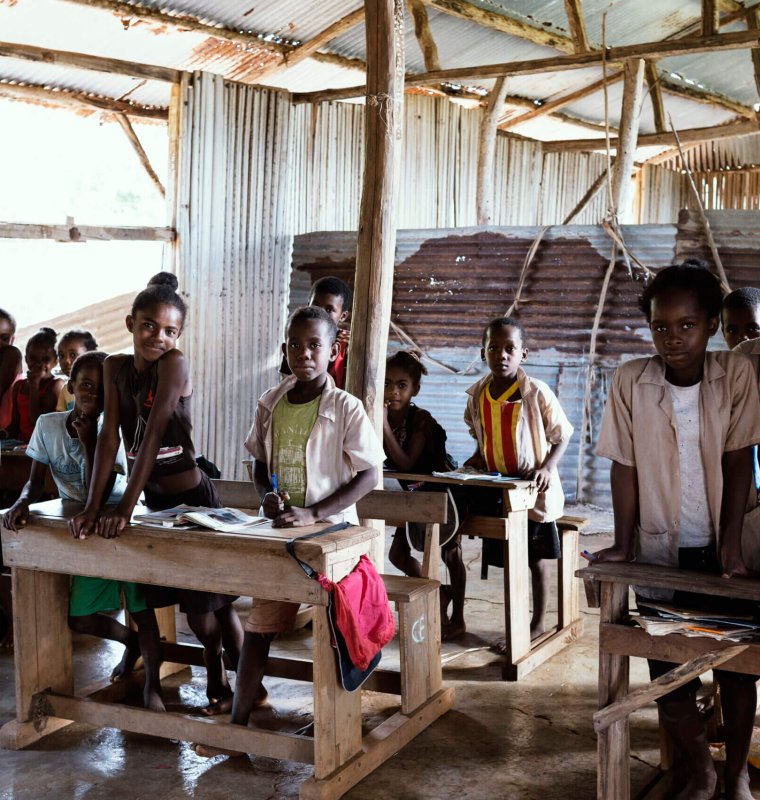
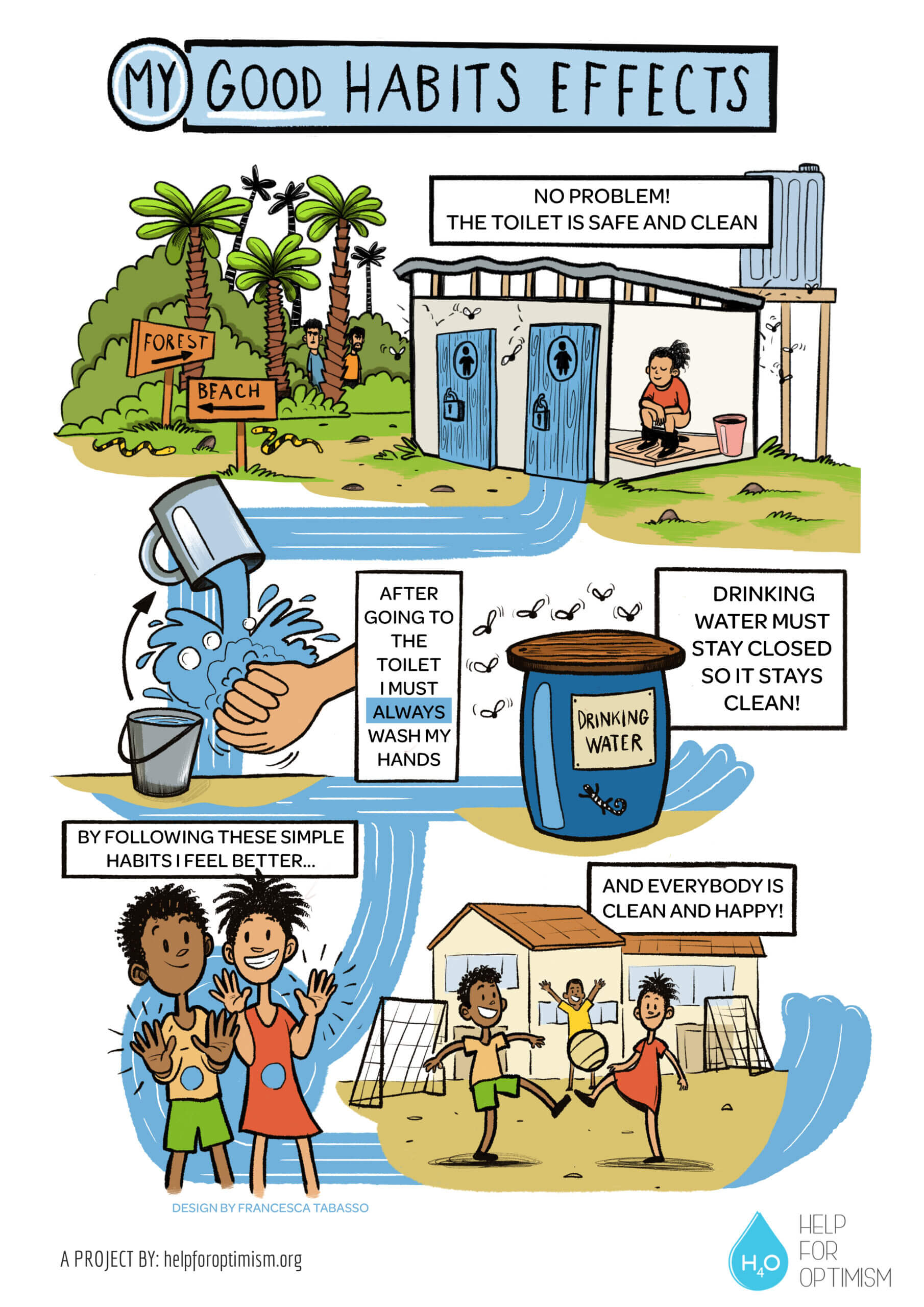
About the Hygiene products laboratory project
Key info
- Project location: Nosy Komba, Nosy Mitsio
- Sector of intervention: WASH
- Dates: 2016 – ongoing
- Target: Students at primary and secondary school and their mothers
- Skills development: Raise awareness, spread of good hygienic practices
For who
Beneficiaries
The project has several types of direct beneficiaries, more specifically:
- 4 female workers employed at Tsara Tsiky
- 4 interns at Tsara Tsiky
- 10 Professors (2 in each of the 7 schools in Nosy Komba
- 6 professore (in the 3 schools in Nosy Mitsio
- 800 students in 7 schools in Nosy Komba
- 250 students in 3 schools in Nosy Mitsio
- 300 mothers
The project has also a bunch of indirect beneficiaries such as all the Households where children promote good practices, the inhabitants of the villages where the posters are hung on schools’ public boards.

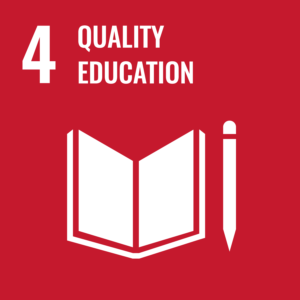

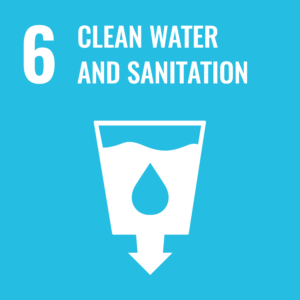

Academic partnerships

Impact
- 6 local women have been trained and empowered to be Trainers and Promoters
- More than 1000 children have beneficiate of the workshops since 2016
- 300 mothers attended the workshops since 2016
- Good Practices and Bad Practices Posters have been designed and distributed to schools and public places.
Description of the project
Why? For whom and through which interventions?
About the context
In Madagascar, most rural population lacks access to clean water (63.77%) improved sanitation facilities (83.39%) and access to products for appropriate personal hygiene (49.46%).
How our research and evidence-based approach shapes our interventions
Based on the H4O evidence-based approach, an in depth geo-localised household WASH KAP (Knowledge Attitudes and Practices) survey has been developed together with the University of Leeds through the MSc Water, Sanitation & Health Engineering Dissertation produced by the H4O member: David Parks. This piece of research allows H4O to assess the awareness of local population and to subsequently prioritise and address the interventions. Thanks to that, H4O has developed in each community the hygiene promotion interventions looking at the problems emerged from the surveys’ results. The problems mainly consisted in:
- Poor Hand washing (not at key times, no soap)
- Poor containers for water collect and storage (buckets with no lid, not cleaned)
- Poor diarrhoea perception (misbeliefs of the real causes, traditional -often inappropriate- treatments, no prevention)
The first WASH KAP survey (2016) also serves as a baseline in order to monitor and evaluate the impact of the interventions.

Core activities
- Training of local women in the scientific basis of communicable diseases by an Italian pharmacist
- Training of women employed by Tsara Tsiky’s in Training of young female students through apprenticeship programmes offered at Tsara Tsiky
- Training of teachers: they were gathered in a group and encouraged to participate and to be involved as responsible of hygiene practices and ambassadors at schools
- Hygiene Promotion campaigns in schools and for school age children’s mothers
- To train 4 girls per school for what concerns the good practices of personal hygiene and some notions about the transmission of communicable diseases

